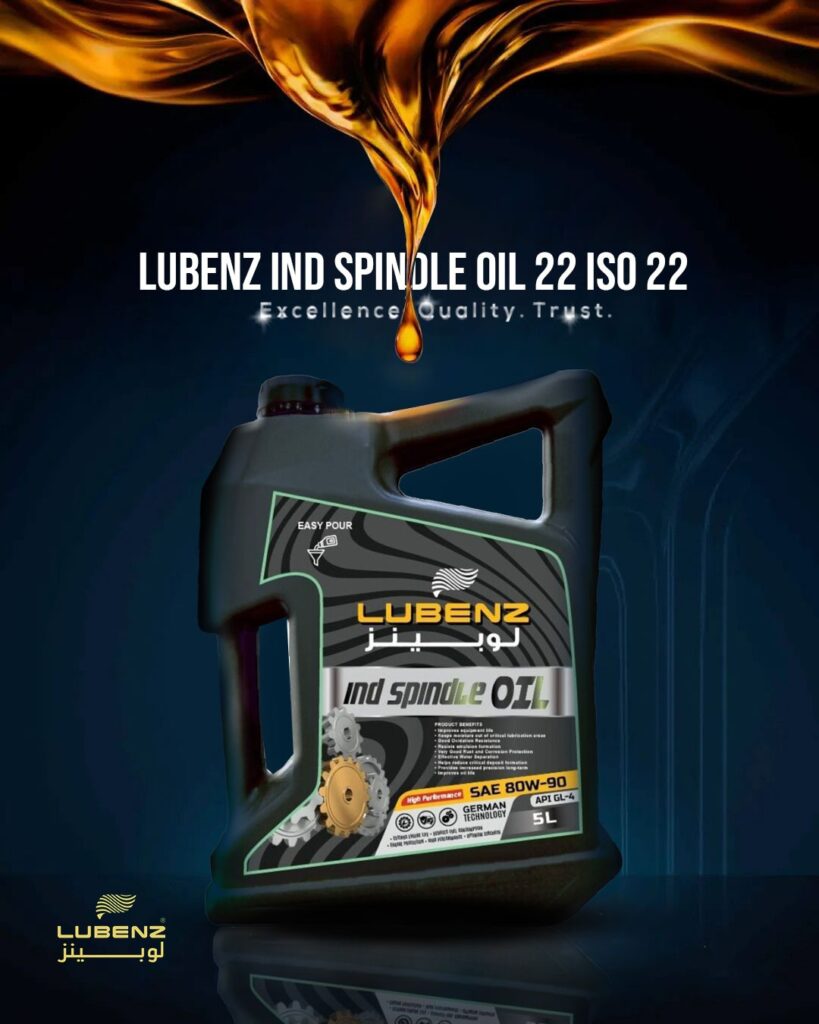Grease wholesaler in UAE
Grease supplier in UAE
Grease manufacturing in the UAE has a profound impact on various aspects of the region's economy, industry, and environment. Here’s a detailed look at its key impacts:
Economic Impact
Job Creation: The grease manufacturing industry generates numerous job opportunities across production, research and development, quality control, and distribution sectors. This contributes to local employment and supports livelihoods in various communities.
Revenue Generation: Local manufacturing facilities contribute significantly to the national economy by generating revenue through the sale of lubricants and greases. This not only supports the industry's growth but also contributes to the UAE's GDP.
Investment Attraction: The presence of a robust grease manufacturing sector attracts both local and international investments. Advanced facilities and technological capabilities make the UAE an attractive destination for investors looking to tap into the growing market for industrial lubricants.
Industrial Impact
Support for Key Sectors: The grease manufacturing industry is crucial for maintaining the efficiency and longevity of machinery and vehicles across various sectors, including automotive, construction, manufacturing, and marine. High-performance greases are essential for the smooth operation of equipment and machinery, reducing downtime and enhancing productivity.
Enhanced Industrial Performance: By providing tailored lubrication solutions, local manufacturers help industries meet specific operational needs and environmental conditions. This customization ensures that machinery operates optimally, contributing to overall industrial efficiency and competitiveness.
Reduced Import Dependence: Domestic production of greases reduces the UAE's reliance on imported lubricants, leading to cost savings and increased supply chain resilience. Local manufacturing also helps stabilize the market by mitigating the impact of global supply chain disruptions.
Environmental Impact
Sustainability Practices: The grease manufacturing industry is increasingly adopting environmentally friendly practices, including the use of sustainable materials and advanced waste management techniques. This helps minimize the environmental footprint of production processes.
Development of Green Products: Investments in research and development lead to the creation of biodegradable and eco-friendly greases, aligning with global trends towards sustainability. These products reduce environmental impact and support the UAE's commitment to greener industrial practices.
Compliance with Regulations: Local manufacturers adhere to stringent environmental regulations and standards, ensuring that their operations and products meet international environmental guidelines. This commitment helps protect local ecosystems and contributes to the UAE’s broader environmental goals.
In summary, grease manufacturing in the UAE has a significant impact on the economy by creating jobs, generating revenue, and attracting investments. Industrially, it supports key sectors by ensuring efficient machinery operation and reducing reliance on imports. Environmentally, the sector’s focus on sustainability and green products helps mitigate its ecological footprint and aligns with global sustainability objectives.
While greases are essential for the efficient and reliable operation of machinery, they can also have negative impacts if not managed properly. These impacts span environmental, health, and operational aspects. Here’s a detailed look at the potential negative impacts of greases:
1. Environmental Impact
Pollution: Improper disposal of used grease can lead to soil and water contamination, adversely affecting ecosystems and wildlife. Grease that leaks from machinery can also contaminate the surrounding environment.
Non-Biodegradable Components: Many greases contain synthetic or mineral oil-based components that do not readily biodegrade, leading to long-term environmental pollution.
Toxicity: Certain additives in grease, such as heavy metals and chemical thickeners, can be toxic to aquatic and terrestrial life.
2. Health and Safety Impact
Exposure Risks: Prolonged skin contact with some types of greases can cause skin irritation or dermatitis. Inhalation of fumes from heated greases can also pose respiratory health risks.
Toxic Components: Some greases contain harmful additives, such as lead, zinc, or other heavy metals, which can pose serious health risks if not handled properly.
Accidents and Spills: Spills and leaks can create slippery surfaces, increasing the risk of accidents and injuries in workplaces.
3. Operational Impact
Inefficiency Due to Incorrect Application: Using the wrong type of grease for specific applications can lead to increased wear and tear on machinery, resulting in frequent breakdowns and higher maintenance costs.
Grease Incompatibility: Mixing incompatible greases can lead to degradation of lubricating properties, causing equipment failure and operational downtime.
Contamination: Contaminants such as dirt, water, and other particles can degrade the performance of grease, leading to reduced lubrication efficiency and potential machinery damage.
Mitigation Strategies
Proper Disposal and Recycling: Implementing proper disposal and recycling practices for used grease can minimize environmental contamination. Many regions have regulations and facilities for the safe disposal of industrial lubricants.
Use of Biodegradable Greases: Choosing biodegradable and eco-friendly greases can reduce the long-term environmental impact. These greases are designed to break down more easily and reduce pollution.
Safety Training and Equipment: Providing proper training to workers on the handling and disposal of greases, along with the use of appropriate personal protective equipment (PPE), can minimize health risks.
Regular Maintenance and Monitoring: Regularly monitoring and maintaining equipment can prevent leaks and spills. Ensuring the use of the correct type of grease for specific applications can improve operational efficiency and reduce machinery wear.
Environmental Regulations Compliance: Adhering to environmental regulations and standards can help mitigate the negative impacts of greases. Many countries have strict guidelines on the use and disposal of lubricants to protect the environment and public health.
In summary, while greases are indispensable for industrial and automotive applications, their improper use and disposal can have significant negative impacts on the environment, human health, and operational efficiency. Implementing best practices for handling, disposal, and choosing environmentally friendly alternatives can help mitigate these risks.
GREASE Manufacturer in UAE GREASE Manufacturer in UAE GREASE Manufacturer in UAE GREASE Manufacturer in UAE GREASE Manufacturer in UAE GREASE Manufacturer in UAE GREASE Manufacturer in UAE GREASE Manufacturer in UAE GREASE Manufacturer in UAE GREASE Manufacturer in UAE GREASE Manufacturer in UAE GREASE Manufacturer in UAE GREASE Manufacturer in UAE GREASE Manufacturer in UAE GREASE Manufacturer in UAE GREASE Manufacturer in UAE GREASE Manufacturer in UAE GREASE Manufacturer in UAE GREASE Manufacturer in UAE GREASE Manufacturer in UAE GREASE Manufacturer in UAE
new advancement technology in greases
Recent advancements in grease technology have focused on improving performance, environmental sustainability, and efficiency. These innovations aim to meet the increasingly stringent demands of modern industrial applications while addressing environmental and health concerns. Here are some notable advancements in grease technology:
1. Nanotechnology
Enhanced Lubrication: Nanoparticles, such as nano-sized metal oxides, carbon nanotubes, and graphene, are being incorporated into grease formulations to improve lubrication properties. These nanoparticles reduce friction and wear by filling in microscopic surface irregularities.
Improved Thermal Conductivity: Nanoparticles enhance the thermal conductivity of greases, helping to dissipate heat more effectively and maintain stable lubrication under high-temperature conditions.
2. Biodegradable Greases
Eco-Friendly Formulations: Biodegradable greases are formulated using renewable base oils, such as vegetable oils and synthetic esters, which break down more easily in the environment, reducing pollution.
Non-Toxic Additives: The use of non-toxic, biodegradable additives ensures that these greases are safer for both the environment and human health.
3. Synthetic Base Oils
Extended Service Life: Greases made from synthetic base oils, such as polyalphaolefins (PAOs) and esters, offer superior oxidative stability and thermal resistance, resulting in longer service intervals and reduced maintenance costs.
Wide Temperature Range: Synthetic greases maintain their performance over a broader temperature range compared to traditional mineral oil-based greases, making them suitable for extreme conditions.
4. Complex Thickeners
Enhanced Performance: The development of complex thickeners, such as calcium sulfonate complex and lithium complex, has improved the high-temperature performance, water resistance, and mechanical stability of greases.
Multi-Purpose Use: These complex thickeners enable the formulation of multi-purpose greases that can be used in a wide variety of applications, reducing the need for multiple specialized lubricants.
5. Additive Technology
Friction Modifiers: Advanced additives, such as molybdenum disulfide (MoS2), tungsten disulfide (WS2), and graphite, are used to reduce friction and wear, enhancing the overall efficiency and lifespan of machinery.
Anti-Oxidants and Corrosion Inhibitors: New antioxidant and corrosion inhibitor additives improve the oxidative stability and corrosion resistance of greases, ensuring long-term protection of components.
6. Self-Healing Greases
Autonomic Repair: Self-healing greases are designed to repair minor surface damage autonomously. These greases contain microcapsules filled with healing agents that release upon detecting damage, filling in scratches and restoring lubrication.
Extended Equipment Life: By continuously maintaining surface integrity, self-healing greases extend the operational life of machinery and reduce maintenance requirements.
7. Smart Greases
Condition Monitoring: Smart greases are embedded with sensors or responsive additives that change color or other properties in response to temperature, pressure, or contamination levels. This provides real-time monitoring of grease condition and equipment health.
Predictive Maintenance: The data collected by smart greases can be used for predictive maintenance, allowing operators to address potential issues before they lead to equipment failure, thus reducing downtime and maintenance costs.
8. Water-Resistant Greases
Enhanced Water Resistance: Advances in thickener technology and additive formulations have led to the development of greases with superior water resistance, making them ideal for applications in wet and humid environments.
Corrosion Protection: These greases provide excellent protection against rust and corrosion, ensuring the longevity of components exposed to water and moisture.
9. High-Temperature Greases
Thermally Stable Formulations: New formulations utilizing synthetic base oils and advanced thickeners maintain their consistency and lubricating properties at very high temperatures, suitable for industrial applications involving high heat.
Oxidation Resistance: Improved antioxidant additives enhance the oxidative stability of high-temperature greases, preventing the formation of harmful deposits and extending grease life.
Importance of Technological Advancements in Greases
The advancements in grease technology are crucial for meeting the evolving needs of modern industrial applications. These innovations lead to improved equipment performance, reduced downtime, and lower maintenance costs. Environmentally friendly and biodegradable greases contribute to sustainability efforts, reducing the environmental impact of industrial activities. Smart greases and predictive maintenance technologies enhance operational efficiency by providing real-time monitoring and data-driven maintenance strategies. Overall, these technological advancements in greases play a significant role in enhancing the reliability, efficiency, and sustainability of industrial operations.
new trends 2024 about greases
As we move into 2024, several emerging trends in grease technology are shaping the industry. These trends focus on enhancing performance, sustainability, and integration with digital technologies to meet the evolving demands of various sectors. Here are some of the key trends:
1. Sustainability and Eco-Friendly Greases
Biodegradable Greases: There is an increasing demand for biodegradable greases made from renewable resources such as vegetable oils and synthetic esters. These greases break down more easily in the environment, reducing pollution and ecological impact.
Low Environmental Impact Additives: Manufacturers are focusing on using additives that have a lower environmental impact, such as non-toxic corrosion inhibitors and biodegradable thickeners.
2. Smart Greases
Condition Monitoring: Smart greases embedded with sensors or responsive additives that change color or properties in response to temperature, pressure, or contamination are becoming more common. These provide real-time monitoring of the grease condition and equipment health.
Data Integration: Integration with IoT (Internet of Things) and Industry 4.0 technologies allows for the collection and analysis of data, enabling predictive maintenance and reducing unexpected downtime.
3. Advanced Additive Technology
Friction and Wear Reduction: New friction modifiers and anti-wear additives are being developed to enhance the efficiency and longevity of machinery. These include advanced solid lubricants like graphene, molybdenum disulfide (MoS2), and tungsten disulfide (WS2).GREASE Manufacturer in UAE GREASE Manufacturer in UAE GREASE Manufacturer in UAE GREASE Manufacturer in UAE GREASE Manufacturer in UAE
Extreme Pressure Additives: Improved extreme pressure (EP) additives are being formulated to protect against heavy loads and high pressures, especially in industrial and automotive applications.
4. High-Performance Synthetic Greases
Wide Temperature Range: Synthetic greases that perform well across a broad range of temperatures, from extreme cold to high heat, are gaining popularity. These greases are ideal for applications in aerospace, automotive, and heavy machinery.
Extended Service Life: Synthetic greases offer superior oxidative stability and longer service intervals, reducing the need for frequent reapplication and maintenance.
5. Customization and Specialized Formulations
Application-Specific Greases: There is a growing trend towards developing greases tailored for specific applications, such as food-grade greases, marine greases, and high-temperature greases. These specialized formulations meet the unique needs of different industries.
Industry-Specific Solutions: Customized greases designed to address specific challenges in industries like mining, agriculture, and renewable energy are becoming more prevalent.
6. Improved Water Resistance
Enhanced Water-Resistant Greases: Advances in thickener technology and additive formulations are leading to the development of greases with superior water resistance. These are particularly important for marine, agricultural, and outdoor applications. GREASE Manufacturer in UAE GREASE Manufacturer in UAE GREASE Manufacturer in UAE GREASE Manufacturer in UAE GREASE Manufacturer in UAE GREASE Manufacturer in UAE GREASE Manufacturer in UAE GREASE Manufacturer in UAE GREASE Manufacturer in UAE
Corrosion Inhibition: New formulations that provide excellent protection against rust and corrosion in wet environments are becoming more common.
7. Regulatory Compliance and Safety
Regulatory-Driven Formulations: Compliance with stringent environmental and safety regulations is driving the development of greases that meet international standards. This includes the use of safer, non-toxic ingredients and environmentally friendly manufacturing processes.
Health and Safety: Formulations that minimize health risks to workers, such as those free from hazardous substances, are gaining traction.
8. Enhanced Thermal and Oxidative Stability
High-Temperature Greases: Formulations that maintain consistency and lubricating properties at very high temperatures are in demand. These greases are suitable for industrial applications involving extreme heat.
Oxidation Resistance: Improved antioxidant additives enhance the oxidative stability of greases, preventing the formation of harmful deposits and extending grease life.
9. Recycling and Reusability
Sustainable Practices: The industry is seeing a shift towards sustainable practices, including the recycling and reusability of greases. Programs for the collection and re-refining of used greases are being implemented to reduce waste and environmental impact.
10. Collaborative Innovation
Industry Partnerships: Collaborative efforts between grease manufacturers, research institutions, and industrial users are leading to innovative solutions. These partnerships facilitate the development of cutting-edge technologies and application-specific greases. GREASE Manufacturer in UAE V GREASE Manufacturer in UAE GREASE Manufacturer in UAE GREASE Manufacturer in UAE GREASE Manufacturer in UAE
Conclusion
The trends in grease technology for 2024 reflect a strong emphasis on sustainability, performance enhancement, and digital integration. These advancements aim to meet the evolving demands of various industries while addressing environmental and health concerns. As these trends continue to develop, they will play a crucial role in shaping the future of grease technology and its applications across diverse sectors.



